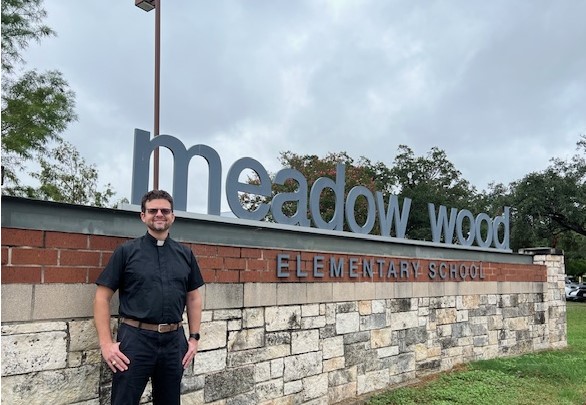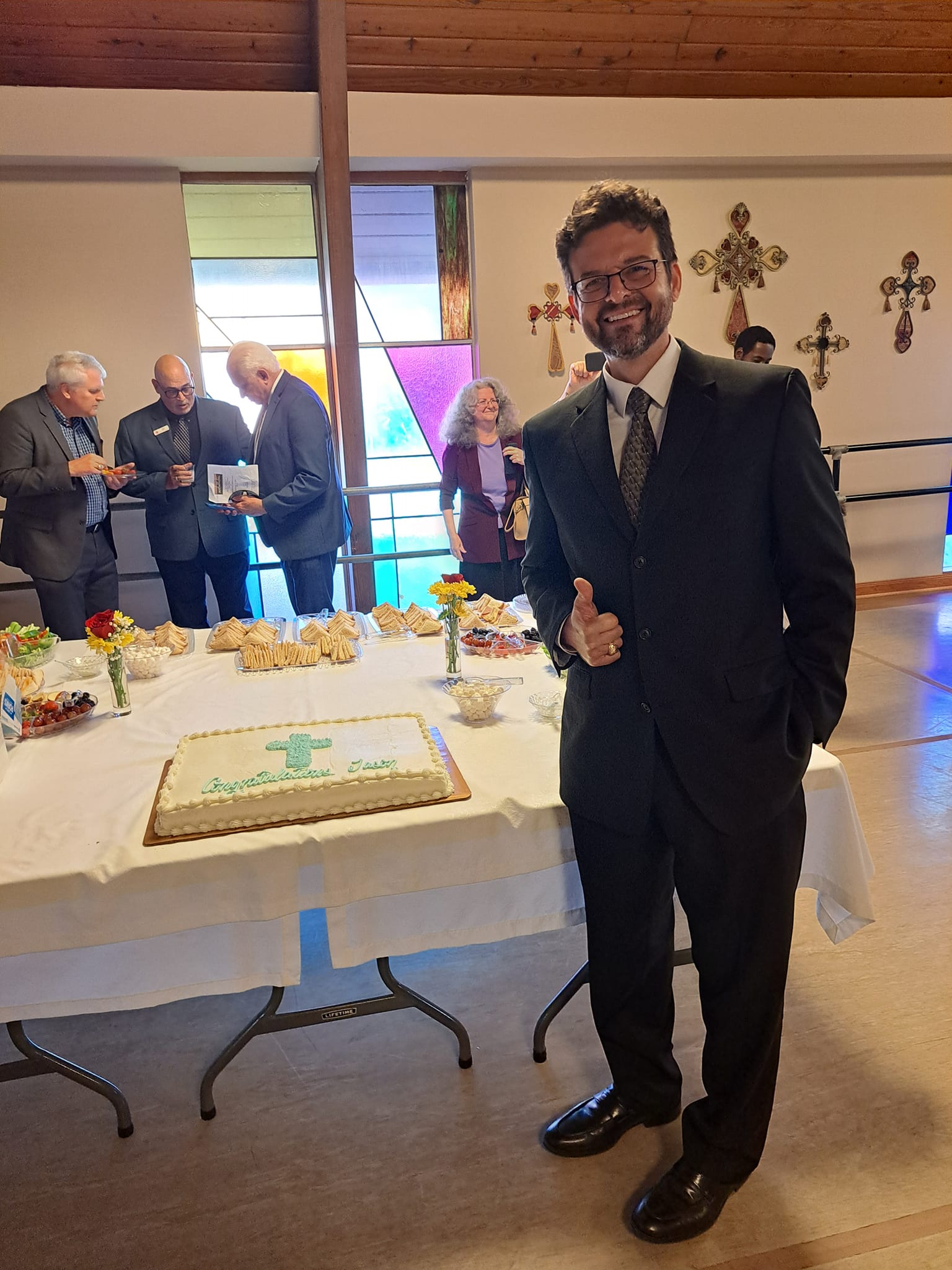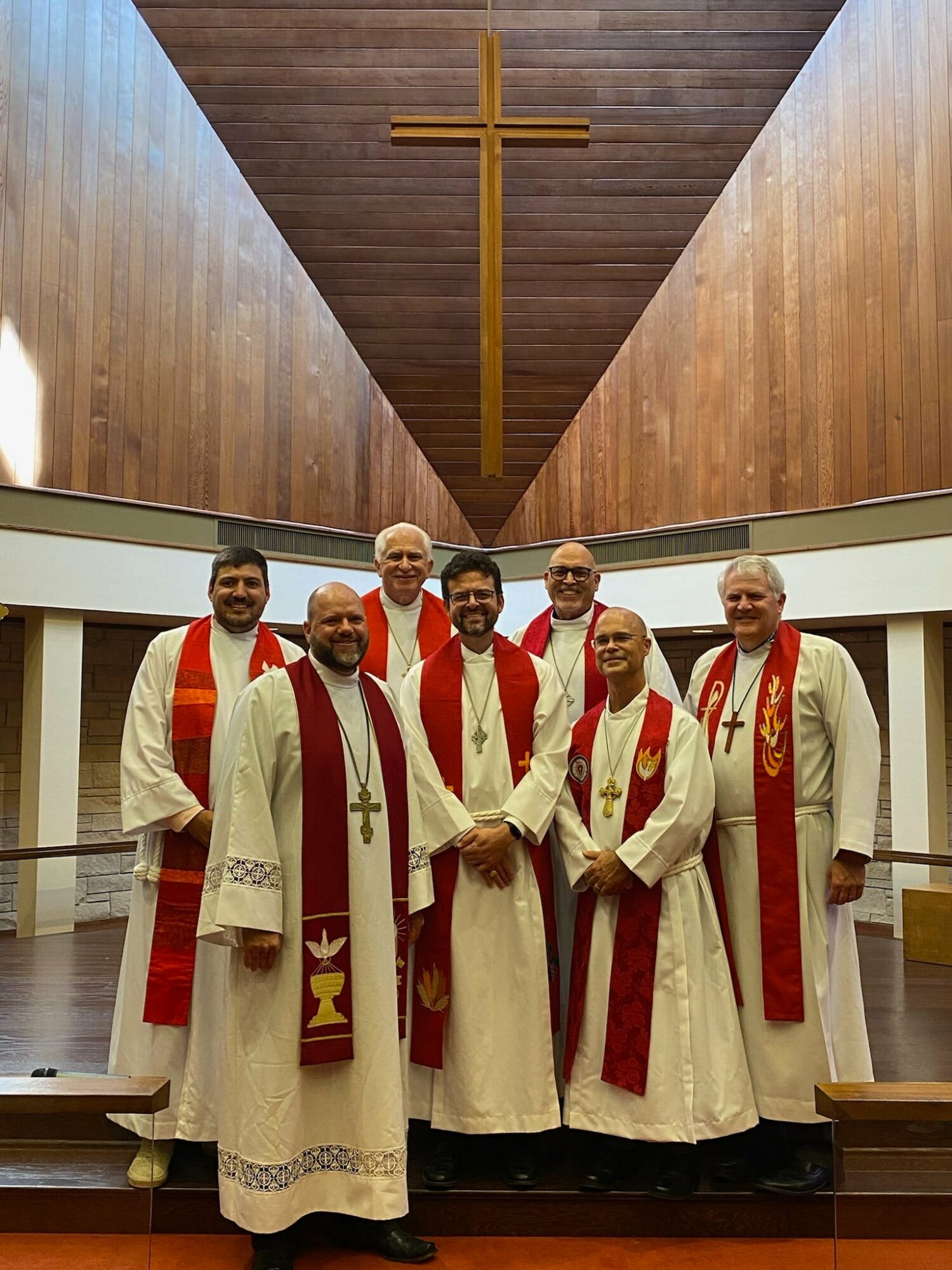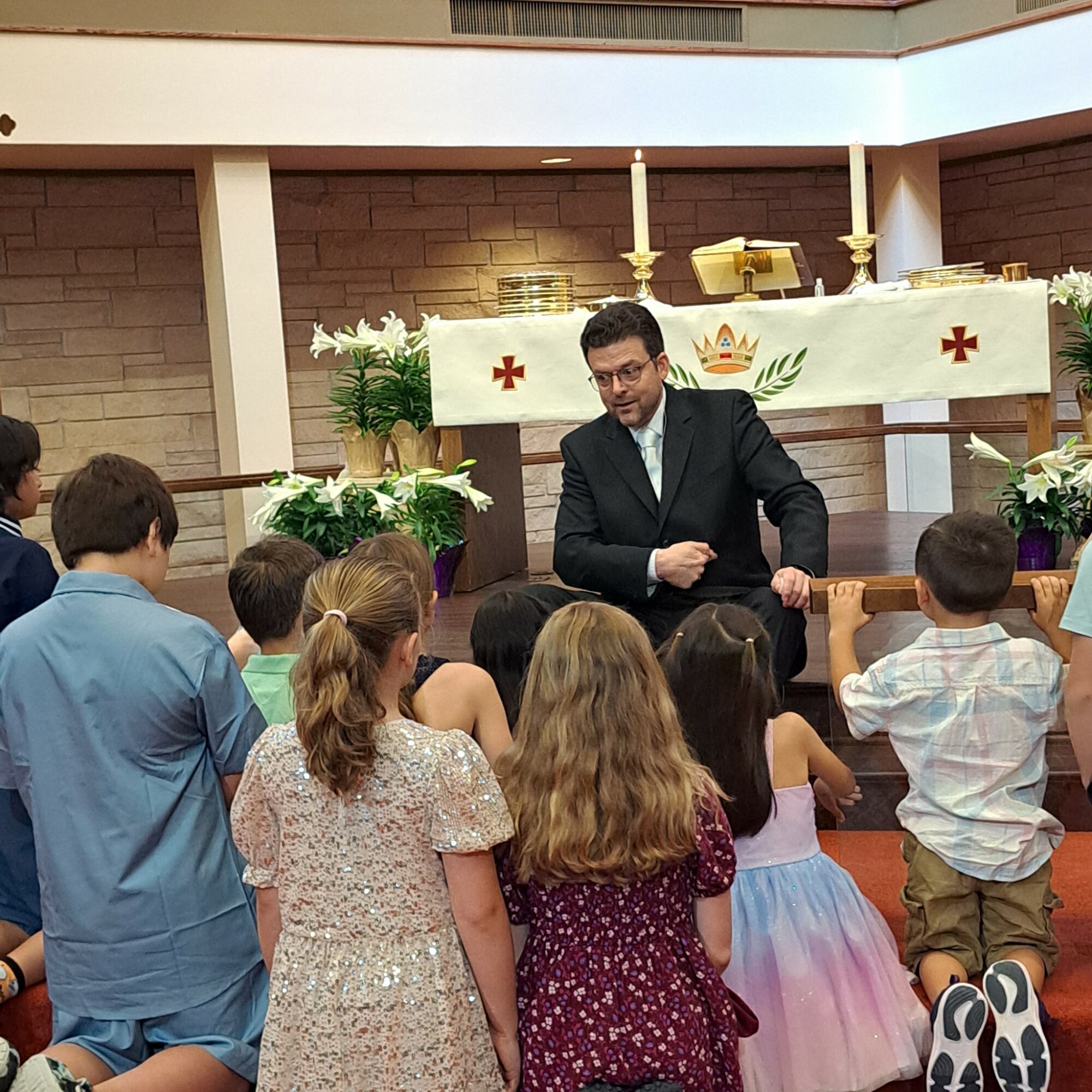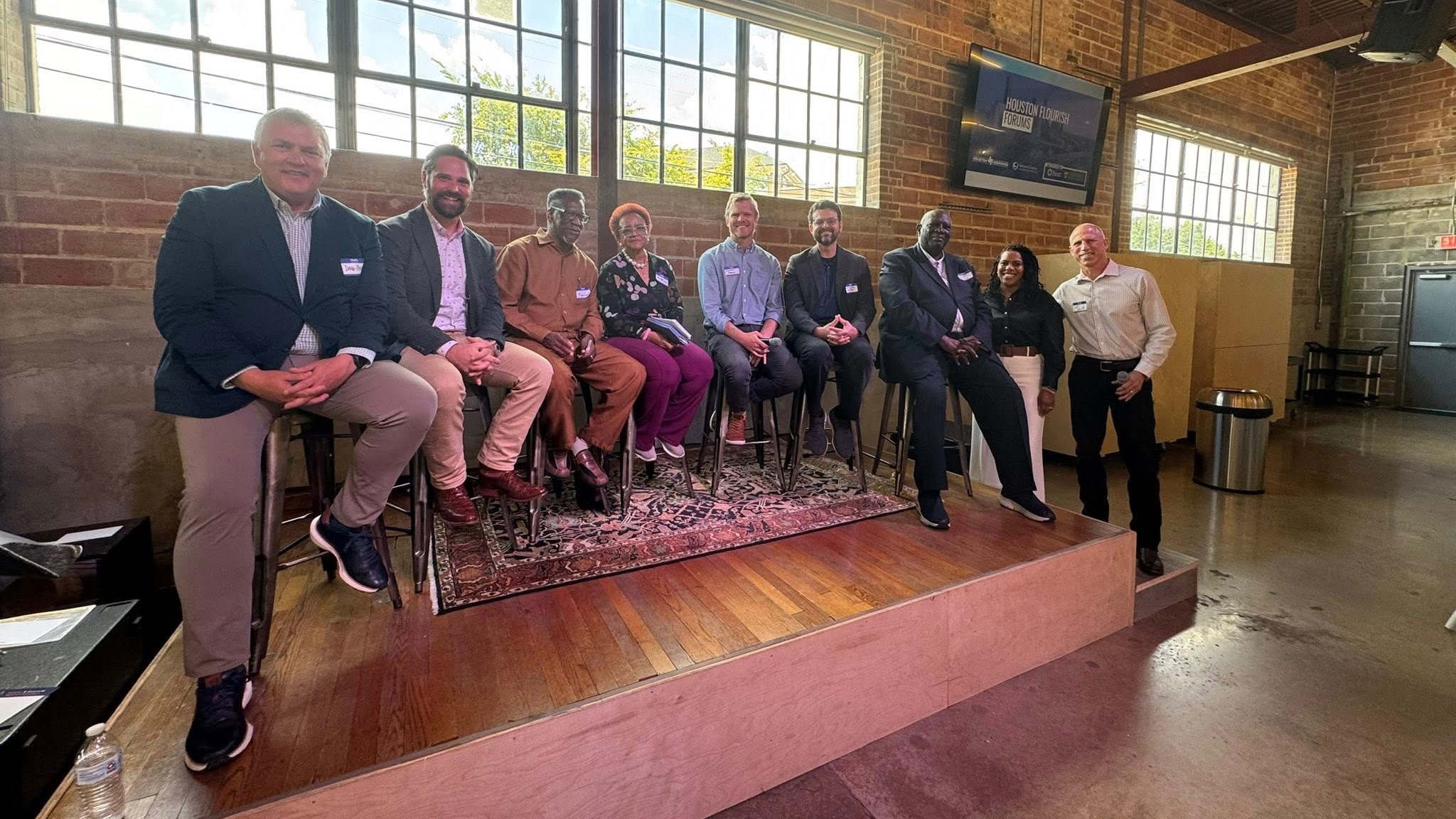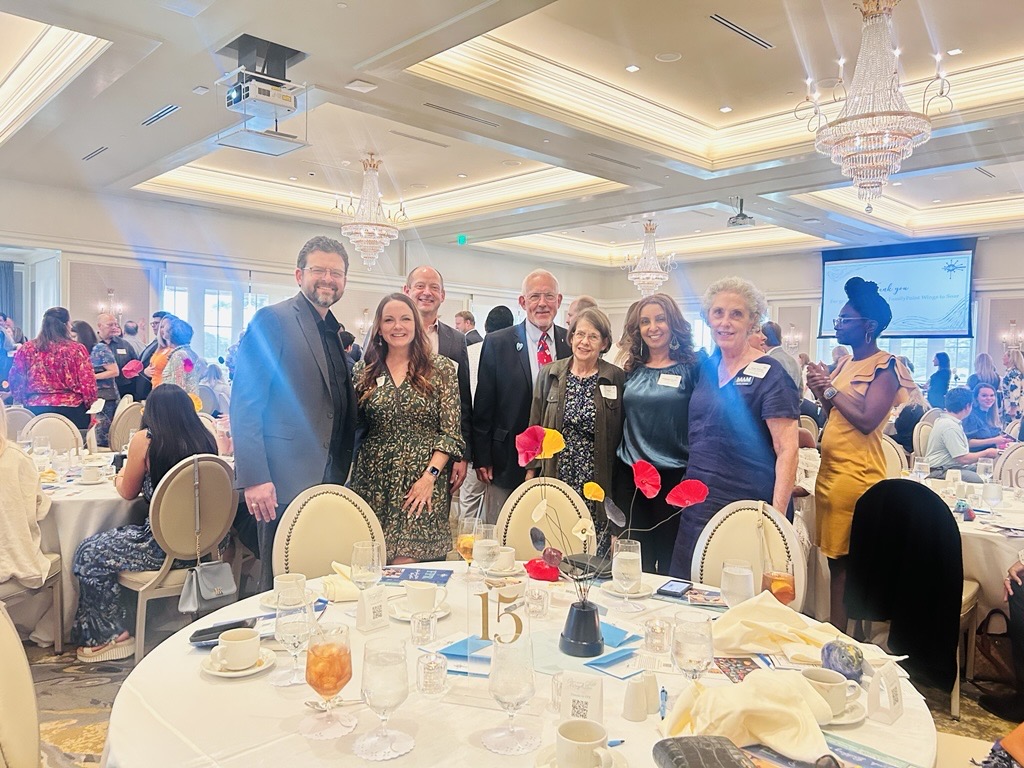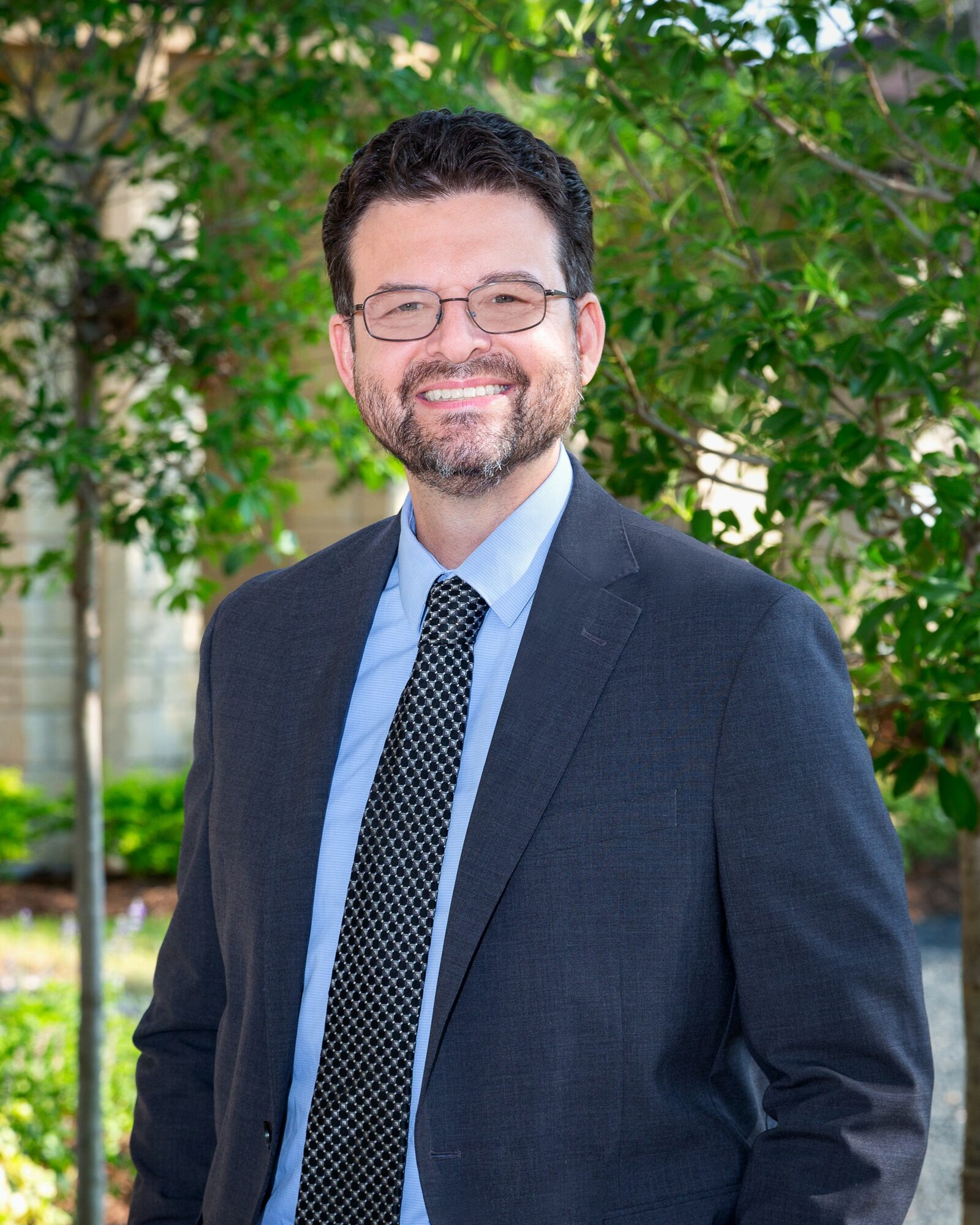

Today we’d like to introduce you to Rev. Jason Moreno, AICP.
Hi Rev. Jason, thanks for sharing your story with us. To start, maybe you can tell our readers some of your backstory.
I was born here in Houston and grew up in the Northline neighborhood. At the age of 5, I gave my life to Christ; I was baptized at age 6. When I was 13, I was diagnosed with cancer, and that experience really shaped the way I see life, faith, and purpose — it gave me a deep sense that life is a gift to be used in service to others.
After graduating high school, I went to Texas A&M and earned a Bachelor’s degree in engineering. From there, I felt called in a different direction and went to seminary in St. Louis, where I got my Masters of Divinity and became a pastor in the Lutheran Church—Missouri Synod. I served as a full-time pastor for four years in California before shifting into education as a math and science teacher. I taught for seven years; during that time, I also spent a year living in China teaching English, which broadened my perspective even more.
When I returned to Texas, I pursued a master’s in urban planning at Texas Southern University. That led me to work in affordable housing with Harris County, combining my interests in faith, community, and practical problem-solving. Eventually, I was called to serve as pastor at Christ Memorial Lutheran here in Houston, where I’ve now been the lead pastor for two years.
So in short, my path has taken me through ministry, education, and community development — but the common thread has always been helping people find hope, stability, and purpose in their lives as I live out my faith and calling in Christ.
Can you talk to us a bit about the challenges and lessons you’ve learned along the way. Looking back would you say it’s been easy or smooth in retrospect?
Both of my parents worked incredibly hard, yet we still had financial struggles growing up. My father was a machinist, and his work took a real toll on his body — especially because he wasn’t trained on the newer CNC machines, so he often worked under tough, physical conditions without the kind of compensation his effort really deserved. He sometimes would be unemployed for periods of time, and he nearly died at one point because of the long-term effects of his working conditions. My mom worked for many years in records keeping for the school district, which could be stressful and offered very little upward mobility. From them, I learned early on the value of perseverance and humility.
Personally, one of the biggest turning points in my life came when I was 13 and diagnosed with Hodgkin’s Lymphoma. That was a confusing time — I was trying to grow up, trying to understand who I was, while also fighting for my life. It forced me to think about life and purpose in ways most kids don’t.
Later on, being the first in my family to go to college brought its own challenges. I had to figure out higher education largely on my own and adjust to a whole new environment. In my early 30s, I went through a divorce after two years of marriage and no kids, which was a deeply humbling experience and taught me a lot about self-awareness and grace.
There were also seasons of unemployment that tested me, but in those times, I discovered more about my gifts and what I’m truly passionate about. And of course, leading and serving during COVID was another major challenge — balancing public service and church ministry during such uncertainty required adaptability, faith, and a lot of patience.
Through it all, I’d say the road hasn’t been easy, but each struggle has deepened my empathy, resilience, and sense of purpose — all of which continue to shape how I lead and serve today.
Thanks for sharing that. So, maybe next you can tell us a bit more about your work?
My work really has two main areas of focus, and the first is what I do here at Christ Memorial.
When I arrived, I took time to review everything that happens within our congregation — all the different ministries, programs, and responsibilities — and reorganized them into six main areas. Three are led by our full-time staff, and three are led by lay leaders and volunteers.
The staff-led ministries focus on ensuring that our worship services are well planned (including inspiring sermons and opportunities for people to serve), spiritually engaging, and offering variety for people at different stages of faith. We also focus on our preschool, which is not only an incredible opportunity to educate children but also a vital way for us to connect with and serve our community. And then there are our facilities, which ensure that our campus is welcoming, well-maintained, and available for both the work of the church and community use.
The three volunteer-led ministries focus on empowering our members to serve and grow. The first is education, which includes Sunday school, small groups, Bible classes, and our summer VBS program. The second is spiritual welfare and care, which focuses on meeting both the physical and spiritual needs of people in our congregation and community. And the third is outreach and missions, which coordinates community events, forms partnerships with organizations like MAM, Family Point, and Gracewood, and oversees the missionaries we support and future mission trip planning.
So that’s the first major part of my work — strengthening the internal structure of our ministries and empowering both staff and lay people to serve effectively together.
The second main area of my work focuses on housing affordability and community engagement.
In this part of my role, I meet with a variety of people and organizations involved in community engagement and development. A big part of what I do is connecting those groups with one another — helping people who are doing good work in different areas find each other so they can collaborate, share resources, and multiply their impact.
I’m also directly involved in affordable housing initiatives. For example, I help coordinate workshops with Memorial Assistance Ministries that guide individuals and families toward programs that can make first-time homeownership more accessible.
Beyond that, I work with a network of pastors, planners, and consultants who are exploring creative ways for churches to be part of the housing solution — including building affordable housing on church-owned land and converting old hotels into rapid rehousing units.
So while the first part of my work centers on strengthening ministry within the church, this second part focuses on extending that mission outward — helping meet real community needs and creating partnerships that reflect faith in action.
So, before we go, how can our readers or others connect or collaborate with you? How can they support you?
There are several ways people can get involved in this work.
If someone feels called to volunteer, one of the most meaningful opportunities is mentoring individuals who are transitioning out of homelessness. Sometimes what people need most is someone to simply check in on them — to listen, offer encouragement, and provide steady emotional support. That one-on-one connection can make all the difference in helping them stay housed and build new, healthy habits.
We’re also looking for partners who are interested in developing affordable housing on their church or organization’s property, or anyone who knows of older multi-unit facilities — like former motels or apartments — that could be converted into rapid rehousing.
And of course, anyone who wants to be part of a congregational ministry that serves our community is more than welcome to connect with us.
Finally, we’re seeking investors and donors who can help sustain and expand the work of housing in the future.
This is really about building a network of compassion — people of faith and goodwill working together to give others the stability and dignity they deserve.
Contact Info:
- Website: https://www.cmlhouston.org
- Instagram: https://www.instagram.com/cmlhoustontx/
- Facebook: https://www.facebook.com/ChristMemorialHouston
- Youtube: https://www.youtube.com/@christmemoriallutheranhouston
